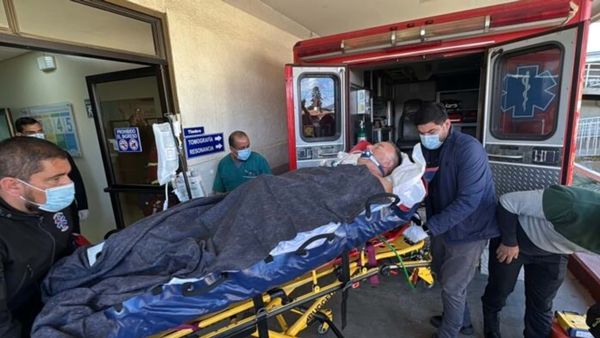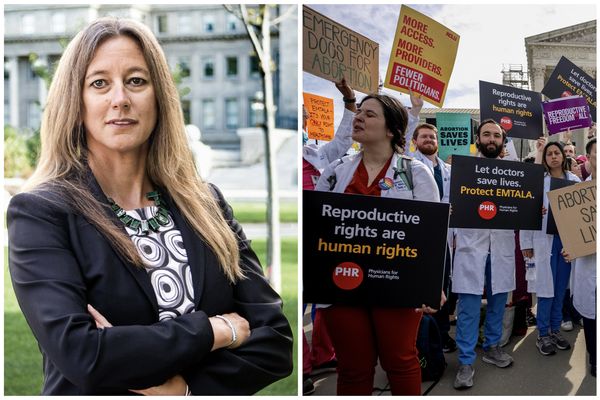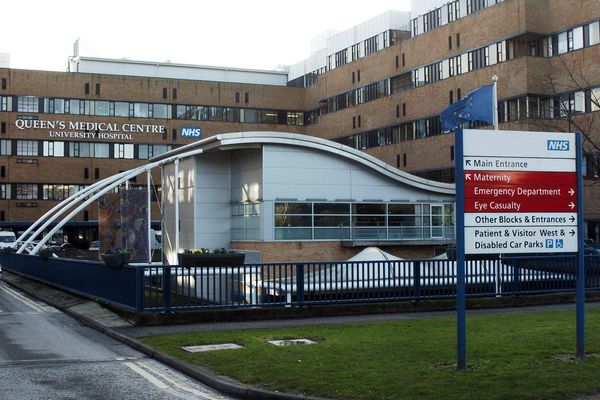Everything was going along just fine--and then it wasn't.
On April 6, a tractor trailer fitted with autonomous driving technology by TuSimple Holdings (TSP) suddenly veers left, cuts across the I-10 highway in Tucson, Ariz., and slams into a concrete barricade.
"Whoa! Whoa!" the passenger seat occupant shouts, while the driver grabs the wheel.
Video of the accident, which is being investigated by federal safety regulators, caused a stir when it was posted on YouTube.
Xiaodi Hou, the company's CEO, addressed the incident during an Aug. 2 earnings call with analysts.
"I want to be very clear, while this -- what caused that human error, as the CEO of TuSimple, I take responsibility for it," Hou said, according a transcript of call. "At the end of the day, this kind of traffic accidents are what we are in the business of trying to eliminate from our road to build a safer, more secure and more reliable freight delivery system across America."
'Human Error'
Hou said the accident happened when the test driver and safety engineer tried to re-enter autonomous driving mode before the system computer was primed to do so and the truck swerved, making contact with the highway barrier.
"There are some who have questioned how this could have happened in the first place," he said. "That's fair. But it is also important keeping this perspective. Collectively, our engineers have spent millions of hours building a system that has caused one incident in all seven years of operation."
"No one was hurt. No property damaged. And we reported to the appropriate government agencies as we should have," Hou said.
TuSimple has been hitting some potholes after going public in April 2021. The company has seen its stock price fall from $40 a share to below $10.
In June, the company announced that Chief Financial Officer Patrick Dillon was leaving, followed a few months later by James Mullen, chief legal and administrative officer.
TuSimple and Mullen are named a civil complaint that charges the company and the IPO underwriters with failing to disclose that the company was rushing the testing of its autonomous driving technology.
At a Crossroads
In spite of the incident, companies are spending billions of dollars on autonomous technology.
Waymo, Alphabet's (GOOGL) self-driving division, which maintains driverless taxi operations in Phoenix and San Francisco, started testing its driverless technology with semi trucks in 2017.
The company has agreements with several companies, including UPS (UPS) and Uber (UBER). Aurora Innovation (AUR), which counts Amazon (AMZN) as one of its investors, has been working with FedEx (FDX) on an autonomous truck program.
Aurora's shares have struggled as well. The stock, which was going for about $17 a share last November, was trading at $2.72 recently. CEO Chris Urmson has floated the idea of a possible sale to Microsoft (MSFT) or Apple (AAPL), according to Bloomberg.
The trucking industry is at a crossroads as experienced drivers are leaving the profession without being replaced.
Driver Shortage
A report by Uber found that long-term demand for drivers continues to outpace supply even after an apprenticeship program set up earlier this year allows people as young as 18 to drive big interstate semi trucks.
Driver shortages and retention have been among the top 10 issues facing the trucking industry for a decade, according to a survey by the American Transportation Research Institute.
But there is a fear factor that arises whenever a massive autonomous truck gets involved in an accident.
"I think people tend to overreact when an automated vehicle has some kind of issue," said Kara Kockelman, a professor of transportation engineering at the University of Texas. "They condemn a full field without considering that humans do the same thing all the time."
She said that younger people aren't signing to be truck drivers because "it's a very tough job."
'Really Powerful Technology'
"They got rid of elevator operators and everybody was so scared that something would happen to the elevators," Kockelman said. "There are a lot of things that have been automated that would have sounded nutty a long time ago."
The Uber report said roughly 5,000 people have been killed in large truck accidents since 2018, with a record high increase of 13% last year. The vast majority of these accidents were the result of human error.
"There is just unbelievable carnage every single day on the highways," said Steve Viscelli, an economic sociologist at the University of Pennsylvania. "This technology has potentially enormous safety benefits. Convincing the public I think is going to take some some time. They're going to have to see it with their own eyes and really experience it."
Viscelli said autonomous trucks are going to completely change the way companies build a distribution system
"This is a really powerful technology that could double or triple what trucks can do in a day," he said.
'Flooded With Speculators'
Michael Belzer, an economics professor at Wayne State University, has his doubts about autonomous trucks--at least for the near future.
"The technology isn’t as good on dirty and uneven roads in bad weather at night as it is in the lab," he said. "Also, I don’t think anyone has figured out the liability question. Are the technology firms liable? Are the carriers that use those driverless trucks liable? Are the manufacturers of these vehicles liable? You can’t blame the driver anymore."
He dismissed the idea of a truck driver shortage, saying "people are not becoming truck drivers because the law doesn’t require that the trucking companies, especially the cargo owners, to pay them for their time."
"I think the industry has been flooded with speculators and only ones prepared to lose money for decades will survive," he said. "Maybe. The money is in driving aids, short of replacing the driver."







